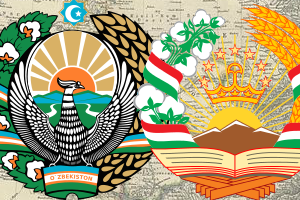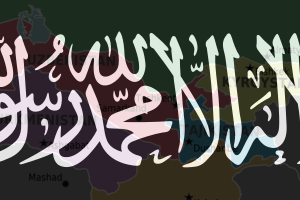Uzbekistan concerned over SCO expansion
By Farkhod Tolipov (05/08/2015 issue of the CACI Analyst)
The Shanghai Cooperation Organization (SCO) held its annual summit on June 9-10, 2015, in the Russian town of Ufa, which was an historical turning point in the organization’s evolution. It adopted a Development Strategy towards 2025 and admitted India and Pakistan as full members. Uzbekistan has taken over the Chairmanship of the SCO from Russia for the next one year period. During the summit, Uzbekistan’s President Islam Karimov expressed concerns revealing Tashkent’s reluctant acknowledgement of the fact that from now on the SCO will be more than just a Central Asia-focused structure.

CACI Analyst, July 8, 2015
Contents
Analytical Articles
THE UZBEK-TAJIK DÉTENTE: CAN IT LAST?, by George Voloshin
AGRI’S PROGRESS ADVANCES BRUSSELS’ AND BAKU’S ENERGY AGENDAS, by Micha’el Tanchum
ISLAMIC STATE IN CENTRAL ASIA: THREAT OR OPPORTUNITY, by Charlie Smith
IS THE NORTH CAUCASUS BECOMING ANOTHER BATTLEFIELD IN THE GLOBAL JIHAD?, by Tomáš Baranec
Field Reports
TAJIKISTAN’S GOVERNMENT MISSES THE REAL PROBLEM OF LABOR MIGRANTS, by Oleg Salimov
RULING COALITION TO CUT FUNCTION OF GEORGIA’S NATIONAL BANK, by Eka Janashia
KYRGYZSTAN’S CONSTITUTIONAL CHAMBER DISMISSES JUDGE, by Arslan Sabyrbekov
BAKU CRACKS DOWN ON ALTERNATIVE MEDIA AFTER CONCLUDING EUROPEAN GAMES, by Mina Muradova
Tajikistan's government misses the real problem of labor migrants
By Oleg Salimov (08/07/2015 issue of the CACI Analyst)
Tajik labor migrants are again at the center of political games between Russia and Tajikistan. At the end of June, Tajikistan’s Ministry of Foreign Affairs delivered a note of protest to Russia’s Ambassador in Tajikistan, objecting to an article in the Russian newspaper AiF, which describes Tajikistan as a country of labor migrants. Soon thereafter, the Russian government allowed the reentry to over 1,000 Tajik migrants earlier deported from Russia for violating immigration laws. This step, as well as the removal of the article from its original source, tempered the Tajik government’s reaction. However, the problem of Tajik labor migrants is far from resolved.
The original article published in the popular Russian newspaper was titled “The country of guest workers. AiF’s special report from Tajikistan.” The article’s central theme was the urgent need for a visa regime between Russia and Tajikistan. Tajikistan’s government as well as the Russia-based social movement Tajik Labor Migrants found the article highly derogatory and offensive. The official statement of Tajikistan’s Ministry of Foreign Affairs pointed to the destructive consequences of such publications on the Tajikistan-Russia relationship. The ministry appealed to the Russian government to prevent publications that distort the truth and contribute to a negative image of Tajikistan.
At the same time, Karomat Sharipov, the chairman Tajik Labor Migrants, published the group’s response to the article on its website. Sharipov asserted that the article was part of a dirty political campaign by Russian pseudo-patriots, aiming to discredit Tajikistan and denigrating the Tajik people. Sharipov agreed that the visa regime for labor migrants is needed, but mainly in order to protect Tajiks arriving in Russia as opposed to protecting Russia from Tajiks as argued in the article. He also noted that such publications are unacceptable for countries seeking to build a strategic partnership.
Following the public outrage in Tajikistan, the Russian government on July 2 pardoned over 1,000 Tajiks, who had previously been deported from Russia for violating the rules of their legal stay. According to Abdullo Kodiri, the press-secretary of Tajik Migration Services, the agreement was reached after negotiations between the two countries’ migratory services. Russia hosts close to a million Tajik migrants as of June 2015, according to Russian Federal Migratory Services. The number is about 200,000 lower than in December 2014.
The amount of money transferred from Russia to Tajikistan by labor migrants in the first quarter of 2015 is also down by 42.4 percent compared to the first quarter of the last year, according to Tajikistan’s National Bank (TNB). TNB reported a total of US$ 289 million transferred to Tajikistan from Russia in the first quarter of 2015. Russia’s Central Bank instead reported transfers of US$ 364 million from Russia to Tajikistan and a drop of 87 percent in the first quarter of 2015, as compared to the same period in 2014. The coefficient of money transfers from Russia to Tajikistan’s GDP is down from 30.8 percent in the first quarter of 2014 to 19 percent in the first quarter of 2015, according to TNB.
The lower number of Tajik labor migrants and the significant drop in money transfers to Tajikistan can be explained by the slowing Russian economy as a result of falling oil prices and economic sanctions implemented by the U.S., EU, and some other countries. While Tajikistan is not part of West-Russia confrontation, the country feels the effect of these sanctions firsthand. Tajikistan could have avoided this situation if the Tajik government would have been genuinely concerned about the problem of outmigration from Tajikistan, unemployment, and the dependency of its economy on money transfers from labor migrants.
While provocative, the AiF article describes a problem that the Tajik government continues to neglect. While expressing its outrage over the article, the Tajik government has failed to outline any actions to address the problem of labor migrants, whose input into Tajikistan’s economy reached 42 percent of the country’s GDP at its peak in 2013. Instead of negotiating with Russia on pardoning labor migrants, Tajikistan’s government should focus on fighting unemployment at home and building a self-sustaining economy. This will create a far more positive image of Tajikistan, which was the primary concern of the government’s protest.
Tajik Labor Migrants warns about the growing number of Tajik migrants disillusioned with their own government and the prospects of employment back home, which become radicalized and join extremist groups like ISIS. In the beginning of July 2015, Radio Ozodi/Freedom reported that Tajikistan’s embassy in Moscow had received a letter from Russian ultranationalists requesting the immediate return of all Tajik migrants to Tajikistan to avoid “dire consequences.” Tajik labor migrants are frequently treated as a point of leverage in political negotiations between Russia and Tajikistan, but are simultaneously a highly vulnerable group whose real needs are rarely recognized.
The Uzbek-Tajik détente: can it last?
By George Voloshin (08/07/2015 issue of the CACI Analyst)
On June 22-24, Uzbekistan’s capital, Tashkent, hosted a third meeting of the Uzbek-Tajik intergovernmental commission on economic cooperation. Unlike the two previous sessions, which were organized in Dushanbe in August 2002 and February 2009, this year’s bilateral trade talks took place against the backdrop of an emerging détente between the two Central Asian neighbors. Uzbekistan and Tajikistan are currently confronted with a host of shared challenges ranging from the threat of radical Islam to socioeconomic instability, while their bilateral relationship is still constrained by unsettled disputes from the past.

Islamic State in Central Asia: threat or opportunity
By Charlie Smith (08/07/2015 issue of the CACI Analyst)
Central Asia is a key region that many believe has fallen into the crosshairs of the terrorist group calling itself the Islamic State (ISIS). Local governments are gravely concerned about returning fighters and possible ISIS infiltration in the region, and foreign powers, especially neighboring Russia and China, have expressed their deep concerns. This grim picture, however, obscures a more complex, and perhaps more accurate, story. Might the specter of ISIS have less to do with its on-the-ground ability to destabilize the region and more to do with the geopolitical concerns of those who are stating these threats?






